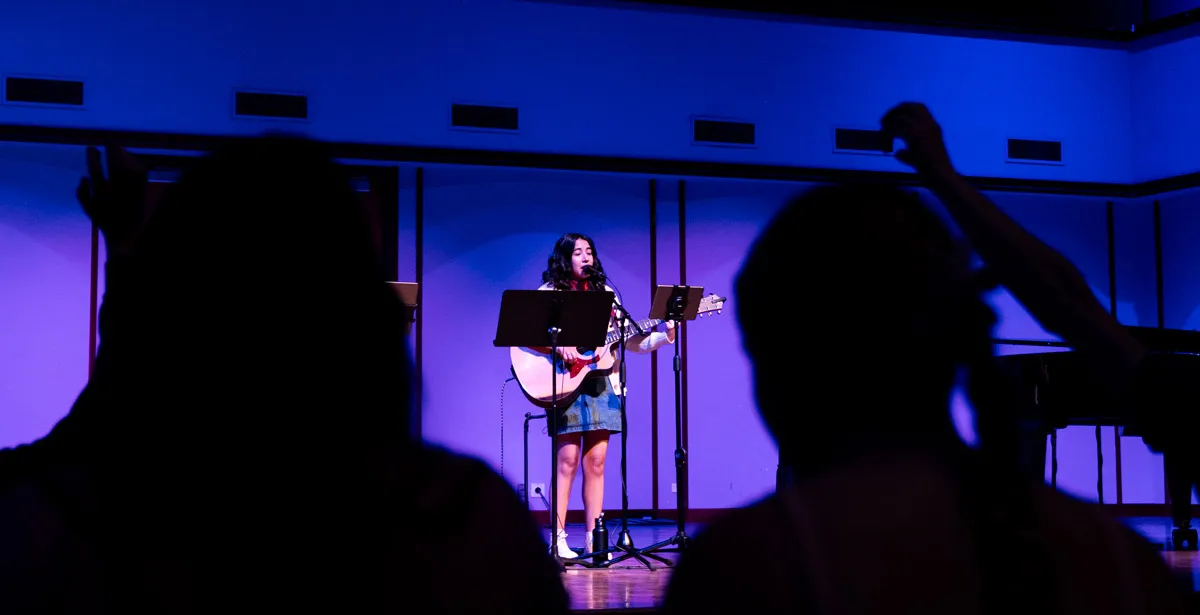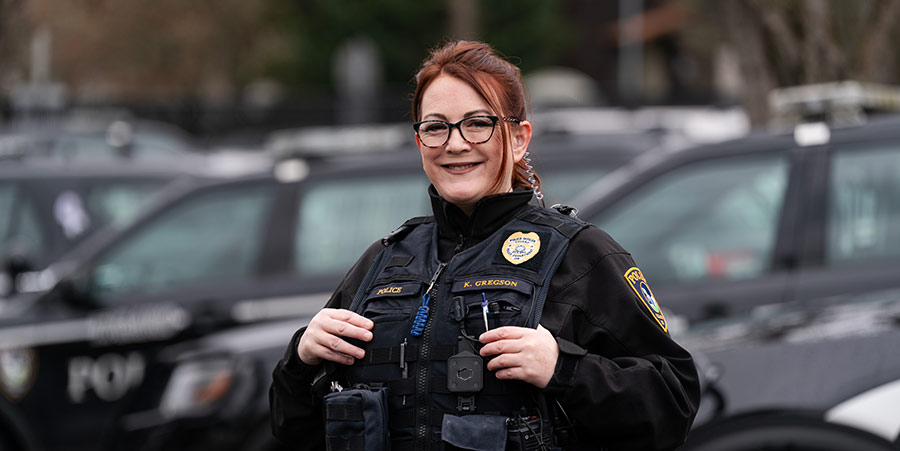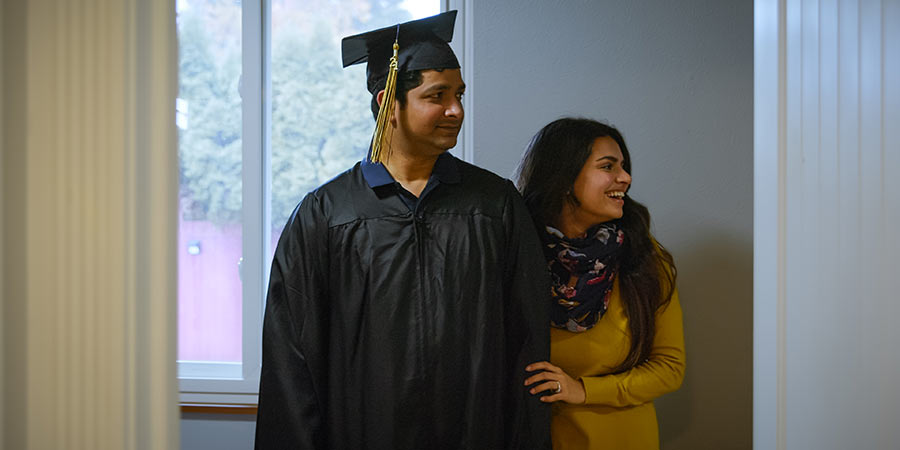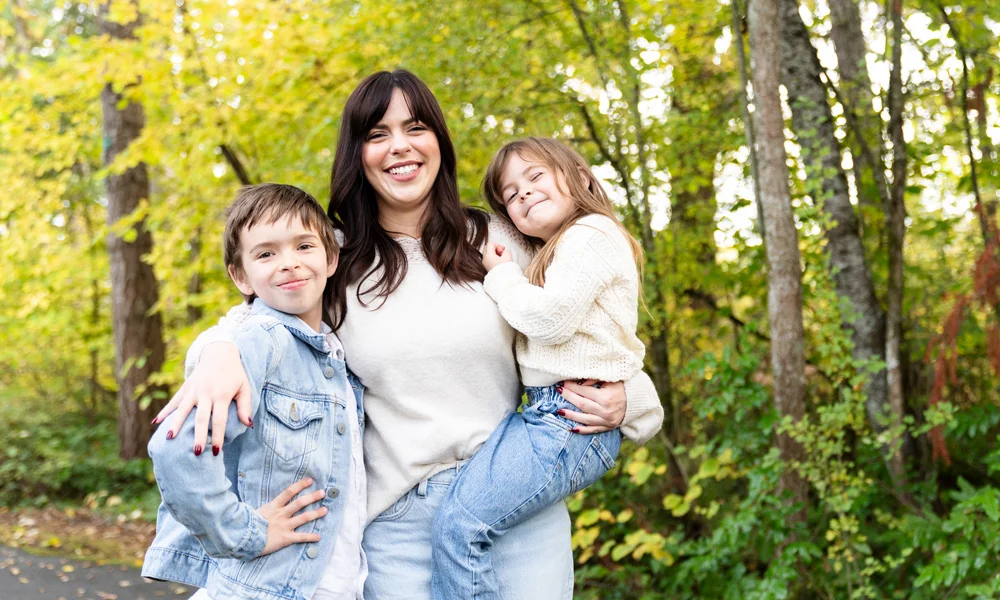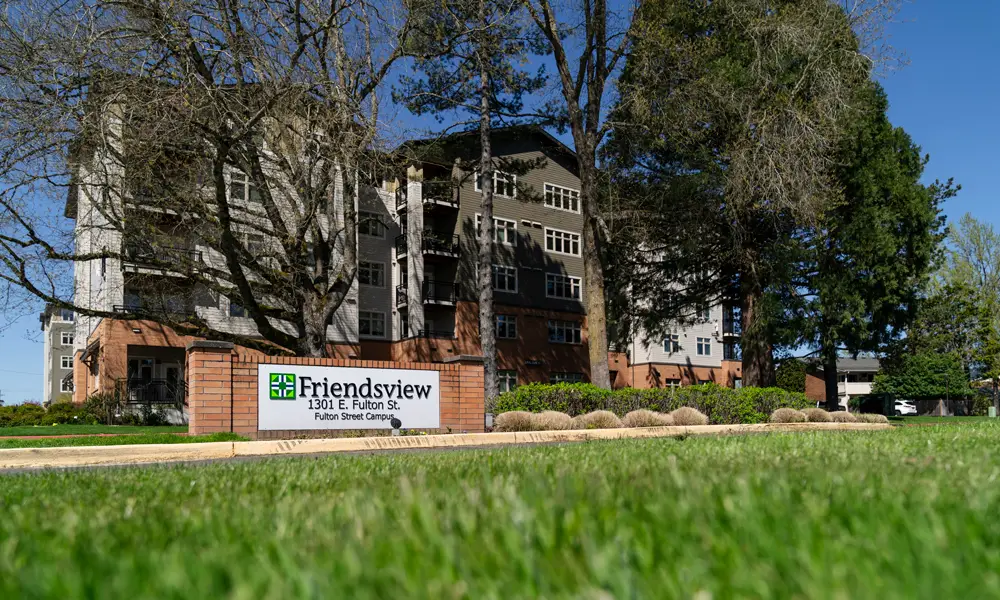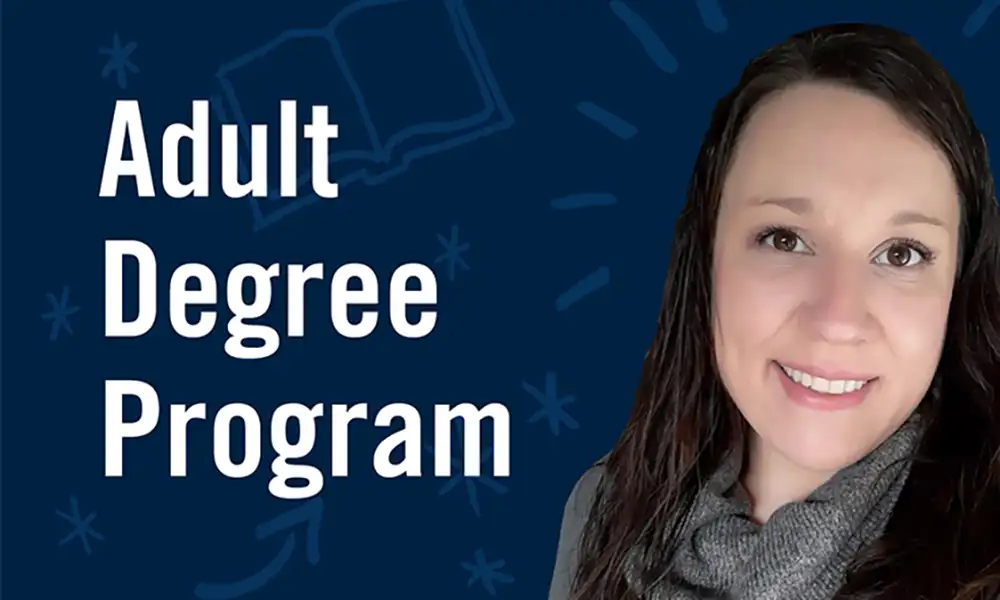
Your Life Counts Here
Getting college credit for the experiences that shaped her helped Emily move forward
Emily Coburn has seen some life. As a single mother who spent much of her early career working at the Oregon State Hospital, Emily’s experience prior to college spanned employment in retail and call centers, working with psychiatric patients and navigating her own health challenges. She’d seen family members struggle with substance abuse and taken care of herself from a young age.
By 23, she’d seen the inside of a courtroom and experienced the gritty reality of drugs and homelessness that many undergraduates only read about.
A family history of addiction statistically put Emily in a risk category for substance abuse. She struggled with her mental health for years, at one point checking herself in for inpatient therapy. As she puts it, she didn’t learn healthy communication or coping skills as a kid, and didn’t have a healthy understanding of relationships.
After a couple bad relationships as an adult, she had ended up using drugs and found herself addicted and homeless.
“I really struggled with my mental health,” she says. “I picked up drugs because I was just kind of done with life.”
Eventually she was arrested for possession of controlled substances and assigned to drug court, a closely supervised treatment program that helps people recover and re-enter society. It was an unexpectedly lucky turn of events, because – for Emily – drug court worked.
“I completed the program successfully, I got off meth, and that’s how I got back to school. You either have to get a job or be in school as part of the program.”
Going back to school marked a turning point for Emily. She’d always valued education, but life got in the way before. Now she saw a degree as the path forward.
For a few years, she attended community college, working toward an associate’s in psychology. Then a friend recommended George Fox University’s Accelerated Online Degree Program, and Emily immediately applied.
Always a strong writer, George Fox’s writing-intensive degree completion program was perfect for her. One of the first opportunities to put her skills to use came through the Prior Learning Assessment (PLA) process. The Accelerated Online Degree Program offers students the chance to earn credit for prior life and work experience – criteria Emily easily met – by writing comprehensive essays about specific time periods.
Her first essay was titled “Drugs and Hope,” and she earned four college credits for it.
“I feel like I've kind of learned my lessons the hard way, and it was a sigh of relief to go over it all and recognize the positive side of it.”
It wasn’t easy, compiling her life events into credit-eligible documents. Students are required to follow specific parameters and use the Kolb/Fry model of experiential learning to construct their essays.
“I definitely jumped into it with confidence and was surprised by how challenging it was,” Emily recalls. “I used the Portland Writing Center for every one of my papers. The whole experience really helped me grow and identify some of my strengths.”
She wrote an essay about her experience volunteering at the Marion Polk Food Share, and noted how she was able to help others who were in recovery by sharing her experience. Her final essay documented her journey to getting healthy – both mentally and physically – through boxing classes, and helped her recognize how beneficial the exercise had been for her.
“It encouraged me to keep doing it,” she says.
As it turns out, “keeping at it” and persevering through hard things are some of Emily’s strengths. Through the process, she began to recognize her own resilience and potential.
“They’ve all been experiences that changed my life, and the PLA was good closure, realizing how far I’ve come.”
Emily’s dream is to pursue a master’s degree and PhD in applied psychology and become a researcher. Passionate about social issues and justice, she wants to use her skills in analysis and writing to bring light to some of the issues she’s experienced firsthand – and make sure that bias doesn’t leave anyone out of the picture.
She’s just one semester away from graduating with her bachelor’s degree in psychology and mental health and determined to see it through to the end.
“I think we need to have more college programs like this,” she says. “People are smarter and more capable than they’re given credit for in many circumstances.”
